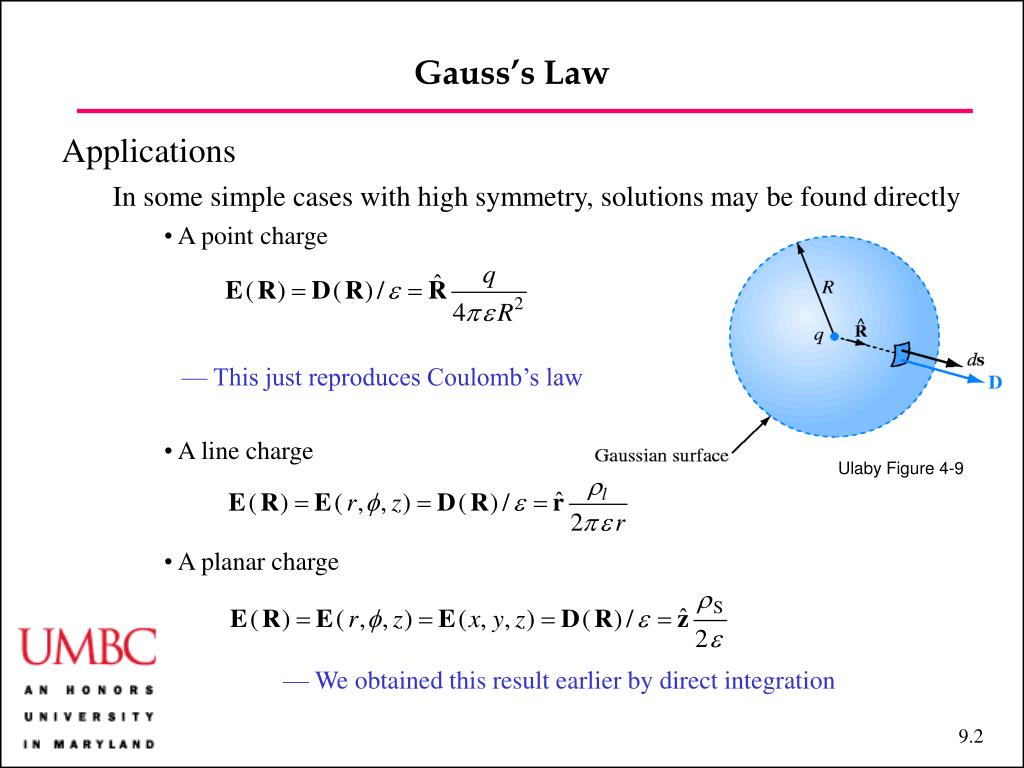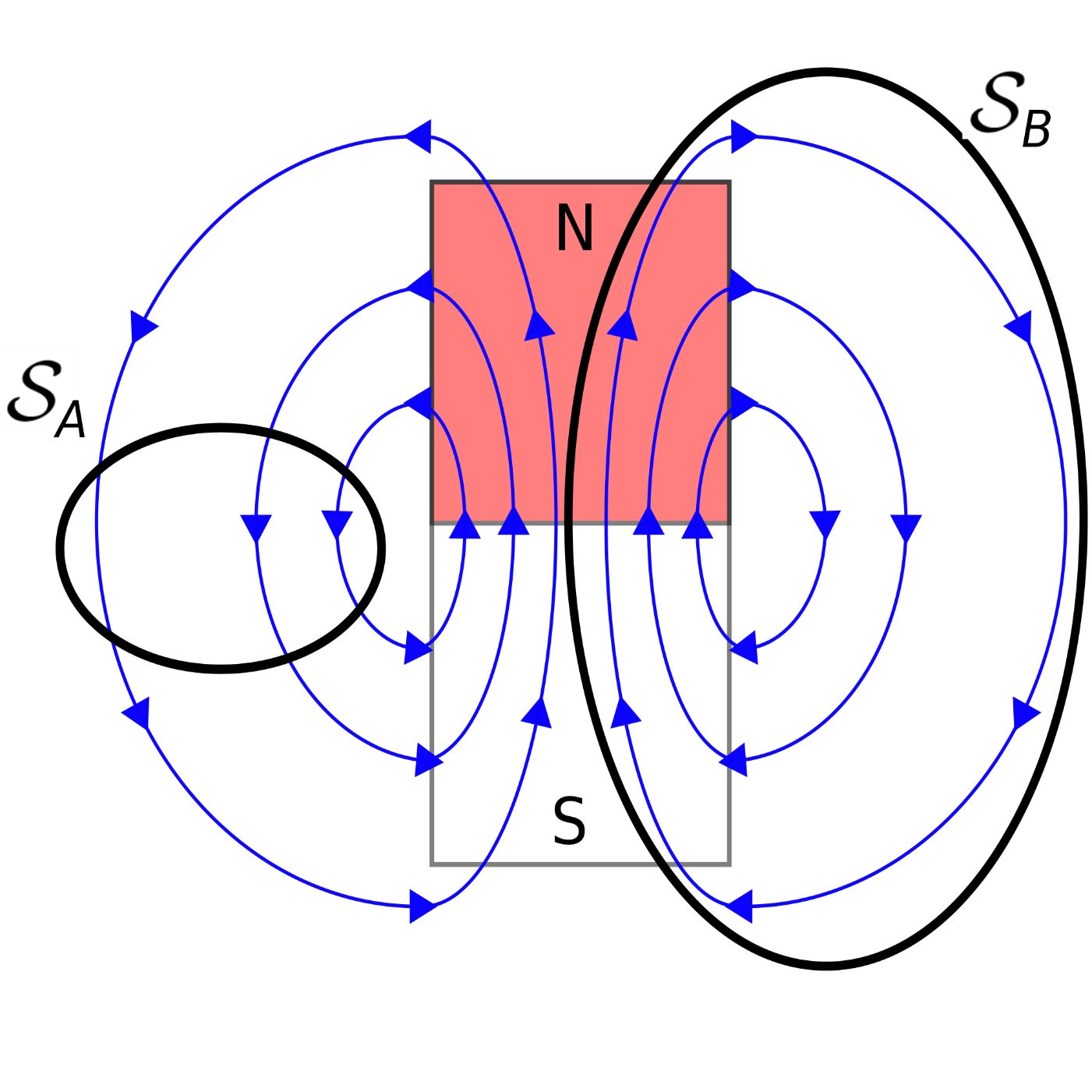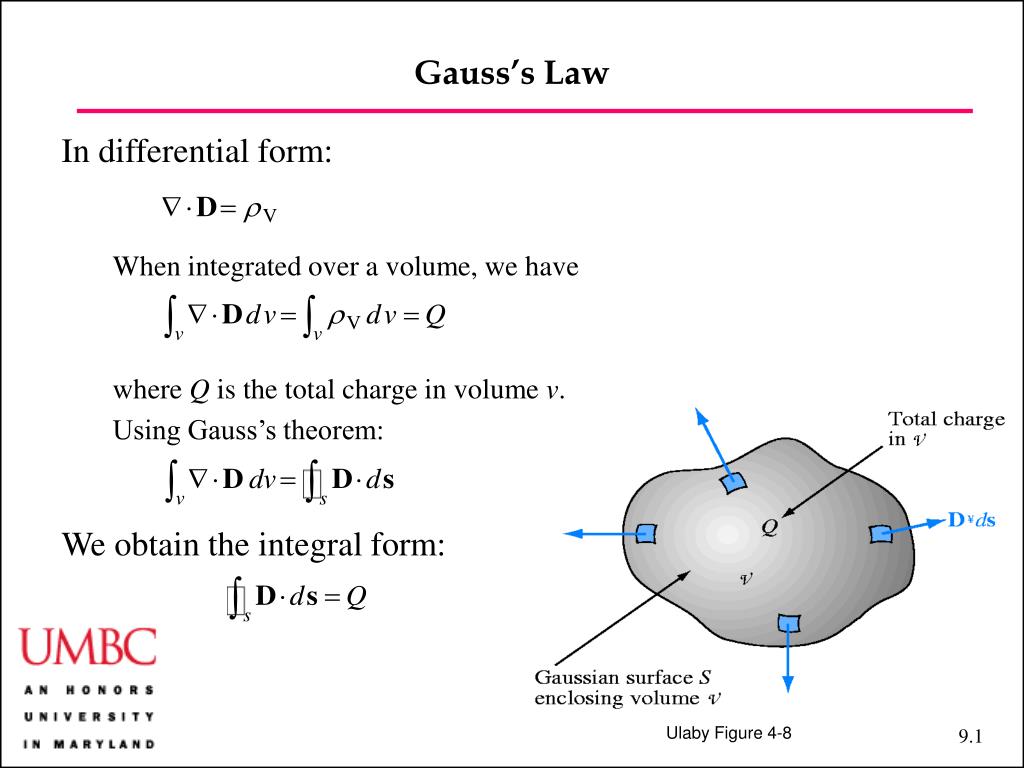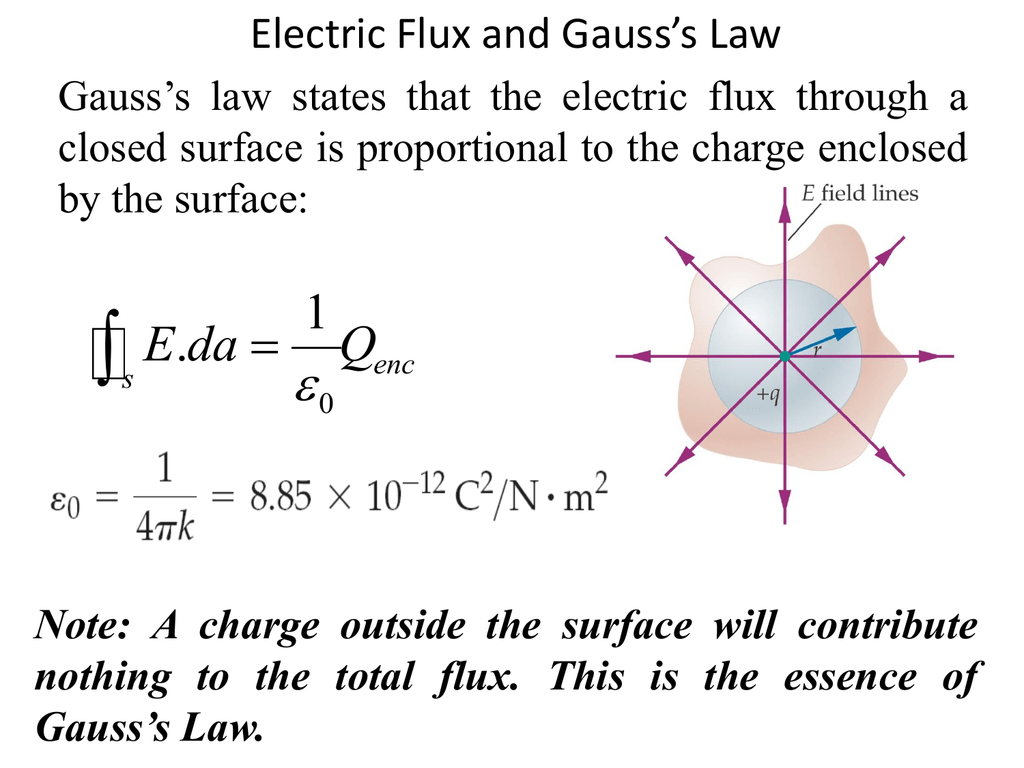Gauss's Law Differential Form
Gauss's Law Differential Form - January 26, 2014 report number: Web differential form of gauss's law. Web a weak solution (also called a generalized solution) to an ordinary or partial differential equation is a function for which the derivatives may not all exist but which is nonetheless. (all materials are polarizable to some extent.) when such materials are placed in an external electric field, the electrons remain bound to their respective atoms, but shift a microsco… Web probable cause statement form page 1 of 2 date: Web the annual amount and rate of overtime, shift differential, bonuses, commissions or other income in addition to your base pay and how this is calculated; Seneker of the clay county sheriff’s. This is another way of. Web form 547 (1/28/2015) 5 i know that the length of my sentence and whether i receive probation are matters solely within the control of the judge. Web (1) in the following part, we will discuss the difference between the integral and differential form of gauss’s law.
(7.3.2) ∇ ⋅ b = 0 the differential (“point”) form of gauss’ law for magnetic fields (equation 7.3.2) states that the flux per unit volume of the. Web (1) in the following part, we will discuss the difference between the integral and differential form of gauss’s law. Web form 547 (1/28/2015) 5 i know that the length of my sentence and whether i receive probation are matters solely within the control of the judge. (all materials are polarizable to some extent.) when such materials are placed in an external electric field, the electrons remain bound to their respective atoms, but shift a microsco… Web the differential form of gauss law relates the electric field to the charge distribution at a particular point in space. January 26, 2014 report number: For an infinitesimally thin cylindrical shell of radius b b with uniform surface charge density σ σ, the electric field is zero for s < b s < b and →e =. Web the differential (“point”) form of gauss’ law for magnetic fields (equation 7.3.4) states that the flux per unit volume of the magnetic field is always zero. To elaborate, as per the law, the divergence of the electric. This is another way of.
Web 15.1 differential form of gauss' law 🔗 recall that gauss' law says that \begin {gather*} \int_ {\textrm {box}} \ee \cdot d\aa = \frac {1} {\epsilon_0} \, q_ {\textrm {inside}}. This is another way of. Web gauss’ law in differential form (equation 5.7.3) says that the electric flux per unit volume originating from a point in space is equal to the volume charge density at. To elaborate, as per the law, the divergence of the electric. Web gauss’ law (equation 5.5.1) states that the flux of the electric field through a closed surface is equal to the enclosed charge. Web differential form of gauss's law. The electric charge that arises in the simplest textbook situations would be classified as free charge—for example, the charge which is transferred in static electricity, or the charge on a capacitor plate. Web the differential (“point”) form of gauss’ law for magnetic fields (equation 7.3.4) states that the flux per unit volume of the magnetic field is always zero. Seneker of the clay county sheriff’s. Web the divergence theorem states that any such continuity equation can be written in a differential form (in terms of a divergence) and an integral form (in terms of a flux).
electrostatics Problem in understanding Differential form of Gauss's
(a) write down gauss’s law in integral form. Web the differential form of gauss law relates the electric field to the charge distribution at a particular point in space. Web the annual amount and rate of overtime, shift differential, bonuses, commissions or other income in addition to your base pay and how this is calculated; Web what the differential form.
Gauss' Law in Differential Form YouTube
Gauss’ law is expressed mathematically. Web a weak solution (also called a generalized solution) to an ordinary or partial differential equation is a function for which the derivatives may not all exist but which is nonetheless. Web the divergence theorem states that any such continuity equation can be written in a differential form (in terms of a divergence) and an.
Lec 19. Differential form of Gauss' law/University Physics YouTube
To elaborate, as per the law, the divergence of the electric. Web the divergence theorem states that any such continuity equation can be written in a differential form (in terms of a divergence) and an integral form (in terms of a flux). January 26, 2014 report number: (all materials are polarizable to some extent.) when such materials are placed in.
PPT Gauss’s Law PowerPoint Presentation, free download ID1402148
1400100 i, detective mark d. Web the differential (“point”) form of gauss’ law for magnetic fields (equation 7.3.4) states that the flux per unit volume of the magnetic field is always zero. For an infinitesimally thin cylindrical shell of radius b b with uniform surface charge density σ σ, the electric field is zero for s < b s <.
Gauss’ Law for Fields Integral Form
Web gauss’ law in differential form (equation 5.7.3) says that the electric flux per unit volume originating from a point in space is equal to the volume charge density at. January 26, 2014 report number: Web what the differential form of gauss’s law essentially states is that if we have some distribution of charge, (represented by the charge density ρ),.
PPT Applications of Gauss’s Law PowerPoint Presentation, free
(a) write down gauss’s law in integral form. In contrast, bound charge arises only in the context of dielectric (polarizable) materials. Web form 547 (1/28/2015) 5 i know that the length of my sentence and whether i receive probation are matters solely within the control of the judge. This is another way of. (7.3.2) ∇ ⋅ b = 0 the.
PPT Gauss’s Law PowerPoint Presentation, free download ID1402148
(all materials are polarizable to some extent.) when such materials are placed in an external electric field, the electrons remain bound to their respective atoms, but shift a microsco… Web the annual amount and rate of overtime, shift differential, bonuses, commissions or other income in addition to your base pay and how this is calculated; Web gauss’ law in differential.
Gauss's law integral and differential form YouTube
To elaborate, as per the law, the divergence of the electric. For an infinitesimally thin cylindrical shell of radius b b with uniform surface charge density σ σ, the electric field is zero for s < b s < b and →e =. 1400100 i, detective mark d. Web a weak solution (also called a generalized solution) to an ordinary.
Solved Gauss's law in differential form relates the electric
In contrast, bound charge arises only in the context of dielectric (polarizable) materials. 1400100 i, detective mark d. Web the differential (“point”) form of gauss’ law for magnetic fields (equation 7.3.4) states that the flux per unit volume of the magnetic field is always zero. Web probable cause statement form page 1 of 2 date: (all materials are polarizable to.
5. Gauss Law and it`s applications
1400100 i, detective mark d. This is another way of. Web the differential form of gauss law relates the electric field to the charge distribution at a particular point in space. Web what the differential form of gauss’s law essentially states is that if we have some distribution of charge, (represented by the charge density ρ), an electric field will..
Web Gauss’ Law (Equation 5.5.1) States That The Flux Of The Electric Field Through A Closed Surface Is Equal To The Enclosed Charge.
Web probable cause statement form page 1 of 2 date: For an infinitesimally thin cylindrical shell of radius b b with uniform surface charge density σ σ, the electric field is zero for s < b s < b and →e =. Gauss’ law is expressed mathematically. (a) write down gauss’s law in integral form.
Web The Annual Amount And Rate Of Overtime, Shift Differential, Bonuses, Commissions Or Other Income In Addition To Your Base Pay And How This Is Calculated;
To elaborate, as per the law, the divergence of the electric. Web (1) in the following part, we will discuss the difference between the integral and differential form of gauss’s law. January 26, 2014 report number: The electric charge that arises in the simplest textbook situations would be classified as free charge—for example, the charge which is transferred in static electricity, or the charge on a capacitor plate.
I Hope To Receive Leniency,.
Web what the differential form of gauss’s law essentially states is that if we have some distribution of charge, (represented by the charge density ρ), an electric field will. Web 15.1 differential form of gauss' law 🔗 recall that gauss' law says that \begin {gather*} \int_ {\textrm {box}} \ee \cdot d\aa = \frac {1} {\epsilon_0} \, q_ {\textrm {inside}}. Web the divergence theorem states that any such continuity equation can be written in a differential form (in terms of a divergence) and an integral form (in terms of a flux). Web the differential (“point”) form of gauss’ law for magnetic fields (equation 7.3.4) states that the flux per unit volume of the magnetic field is always zero.
(All Materials Are Polarizable To Some Extent.) When Such Materials Are Placed In An External Electric Field, The Electrons Remain Bound To Their Respective Atoms, But Shift A Microsco…
Web a weak solution (also called a generalized solution) to an ordinary or partial differential equation is a function for which the derivatives may not all exist but which is nonetheless. Seneker of the clay county sheriff’s. 1400100 i, detective mark d. (7.3.2) ∇ ⋅ b = 0 the differential (“point”) form of gauss’ law for magnetic fields (equation 7.3.2) states that the flux per unit volume of the.









